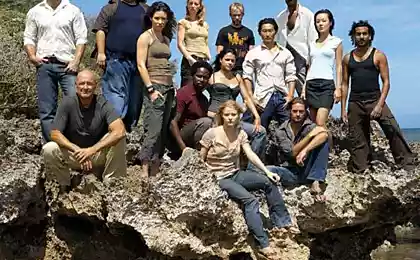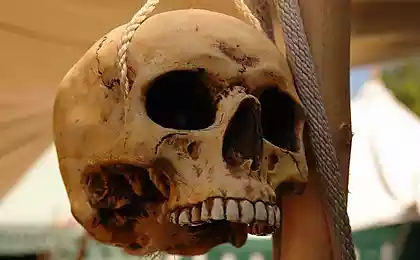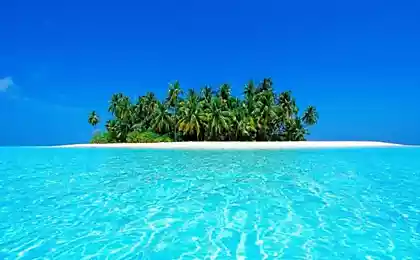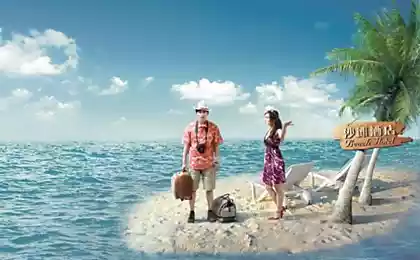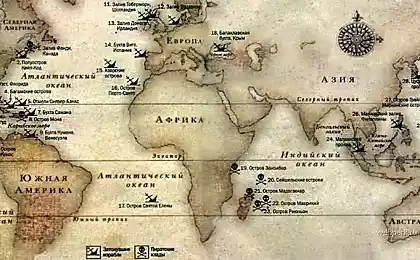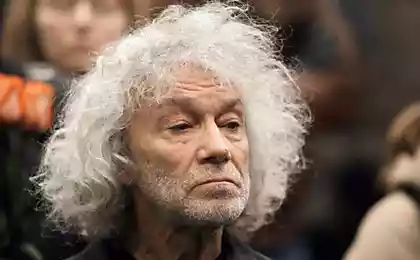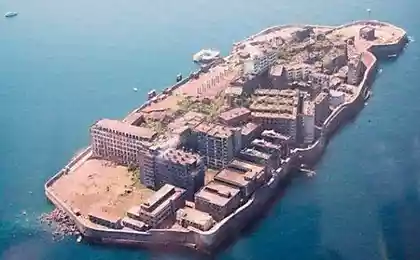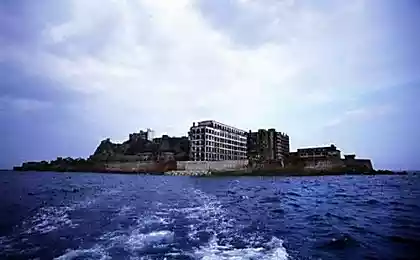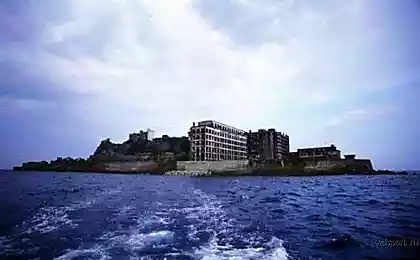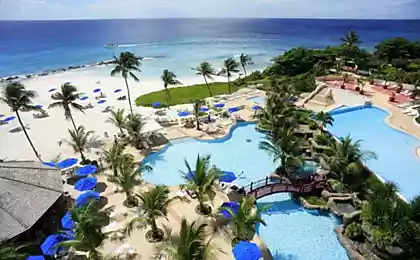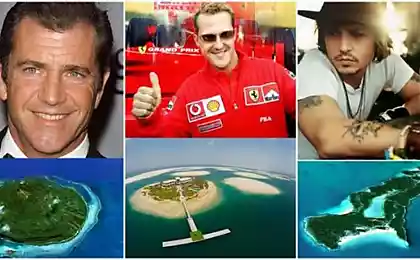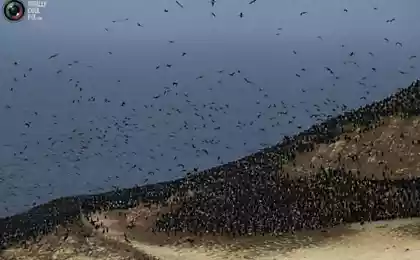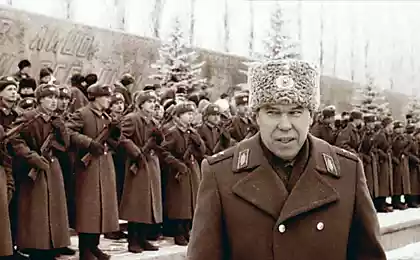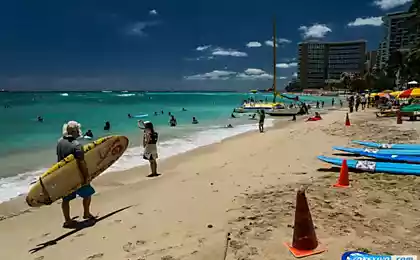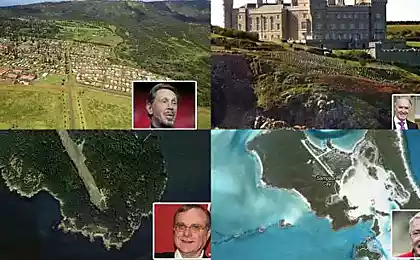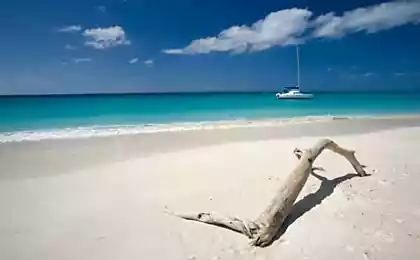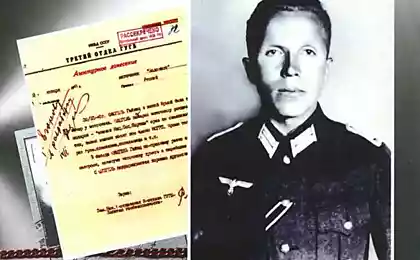689
Island rusty General.
Writes ralphmirebs:
A few months ago I spoke about the vast expanses of Kildin Island, about what there is nature, flora and fauna. Today I'll show you the other side of the island - what is left after the departure of the person. Let me remind you that in Soviet times, the island has a number of military units - the border guards, air defense, artillery and missile troops. Now, all these parts are closed, their territory is overgrown with moss and grass, from which the towering skeletons of buildings and equipment.
48 photos and some text.
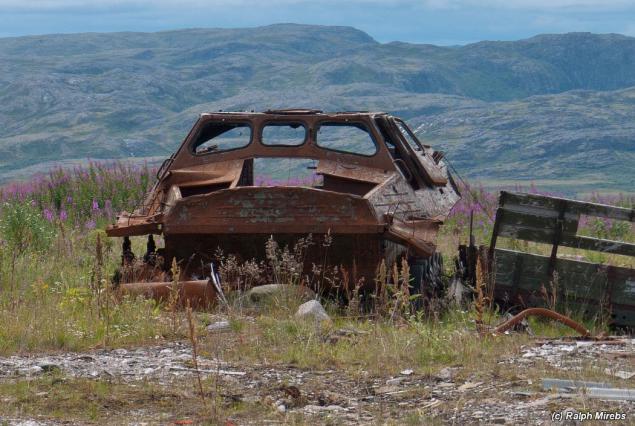
2. Upper Village Kildin. The beginning of the settlement of the "upper" Kildin in the western part of the island can be considered as the first world war, when the 1914-1916 biennium. We created the first monitoring stations on the Kola Peninsula. Until 1935, all the inhabitants of the Upper Kildin were represented only by personnel post Kildin West and lighthouses. At the end of 1935 it began the construction of a coastal battery, consisting of two towers MB-2-180. Battery State: 191 people. On the basis of the battery was formed 2nd separate artillery battalion formed the basis infrastructure of the island, as well as the general population of the Upper Kildin 15 years. Before the war the island was transferred the newly formed 6th separate anti-aircraft artillery battalion. The main buildings at the time were dug for the personnel. In 1955, the DAO was disbanded, but in the same year began the construction of a coastal missile system and the creation of 616 separate coastal missile regiment. To protect the island's infrastructure and approaches to the Kola Peninsula in the West Kildin placed air defense battalion. The presence of separate coastal missile regiment on the island - it's heyday West Kildin. In 1995, the regiment was taken to the Kildin ... At the moment the Upper Kildin completely abandoned.
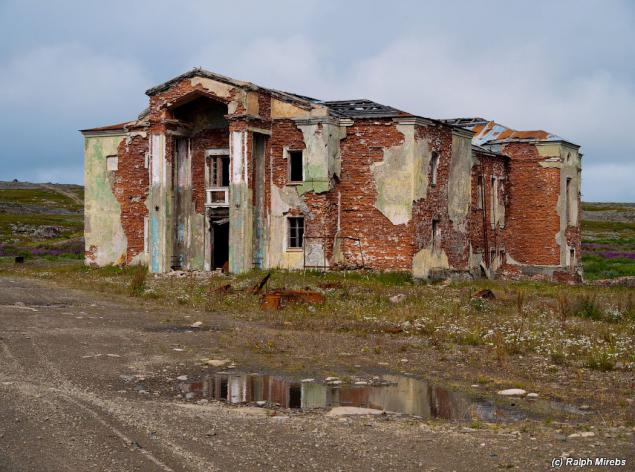
03
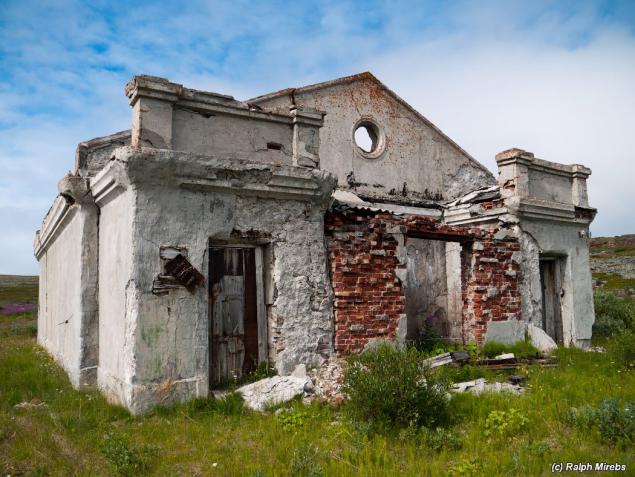
04
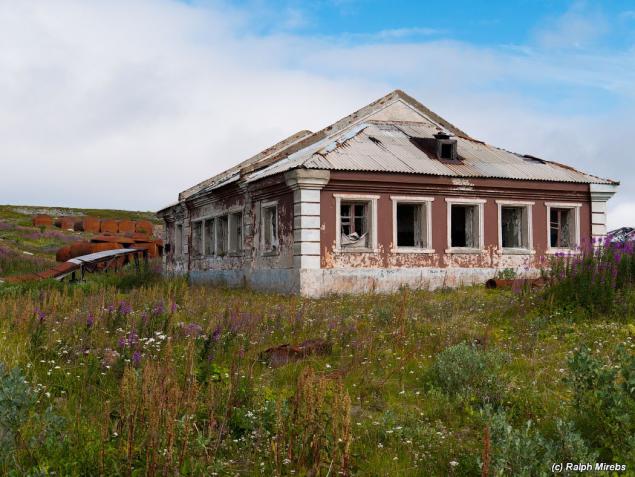
05
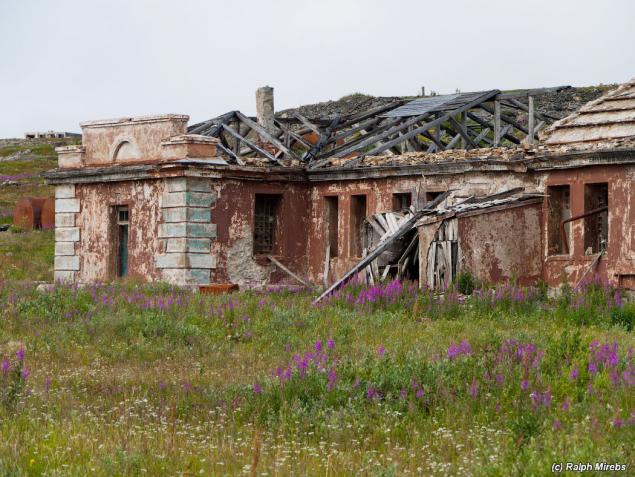
06
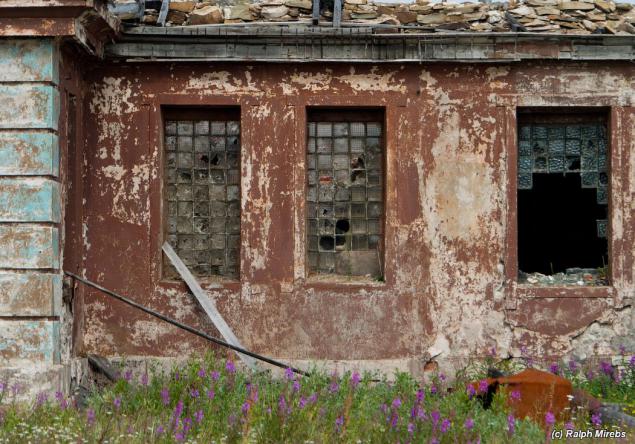
07
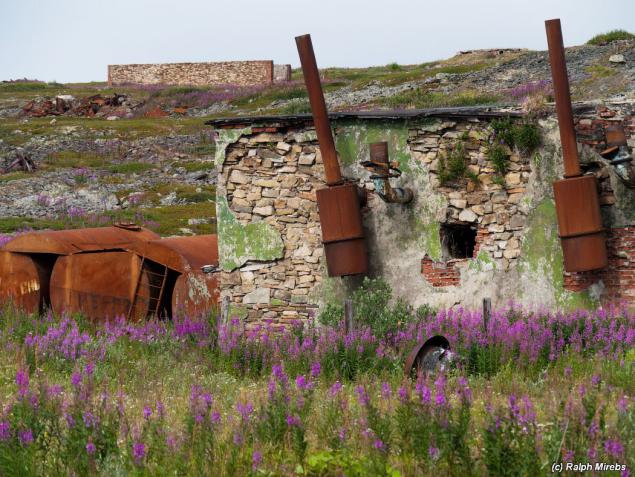
08
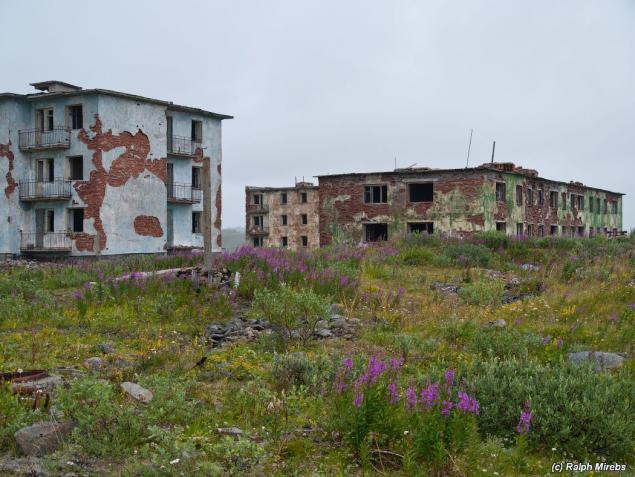
09. Everywhere strewn remnants of abandoned machinery - tracked a variety of cars, trucks, trailers
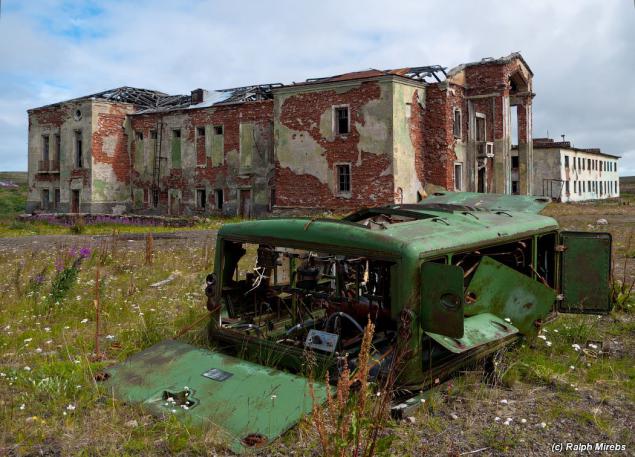
10
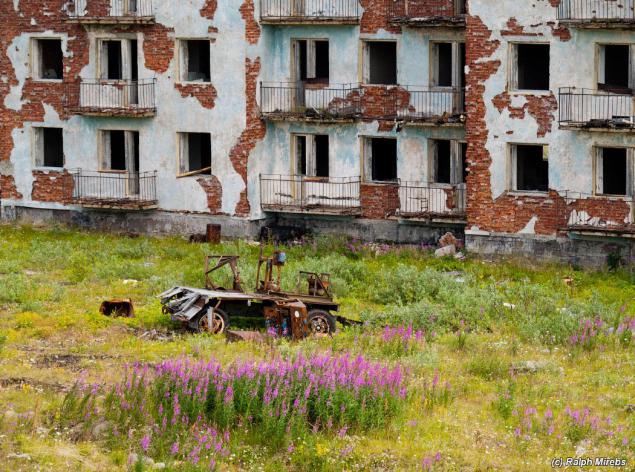
11
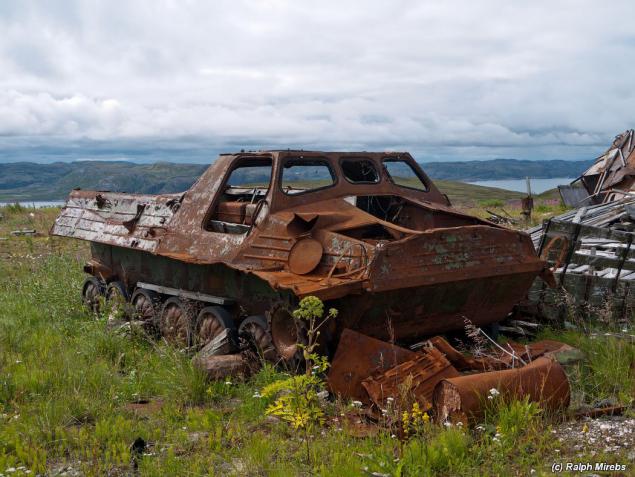
12
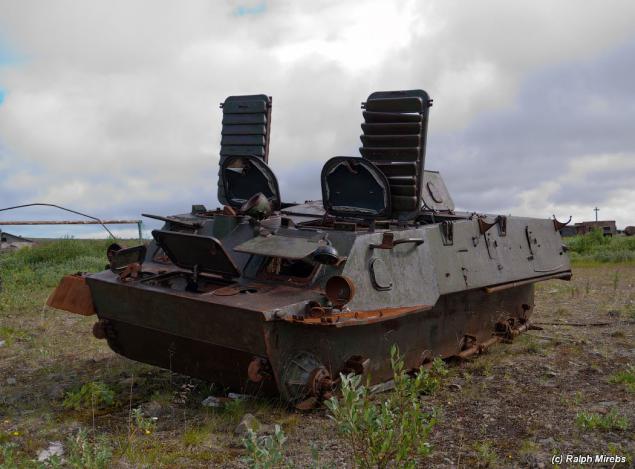
13
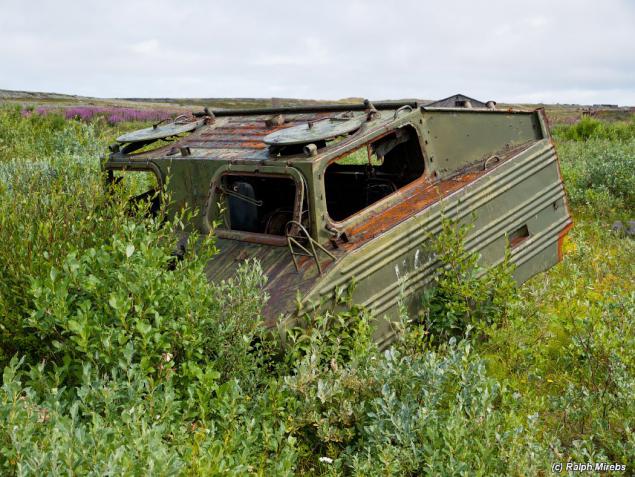
14
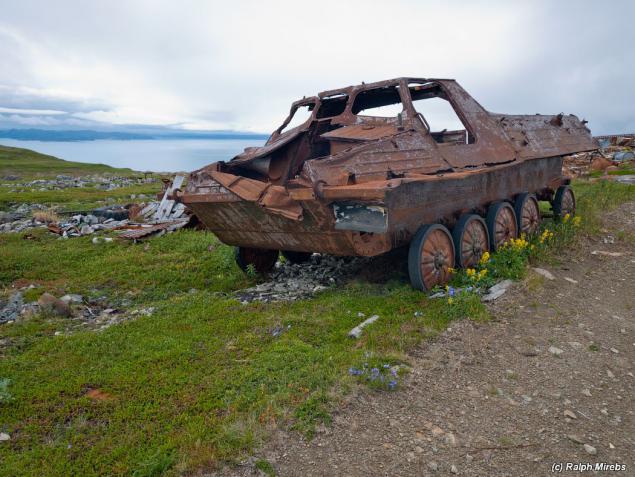
15
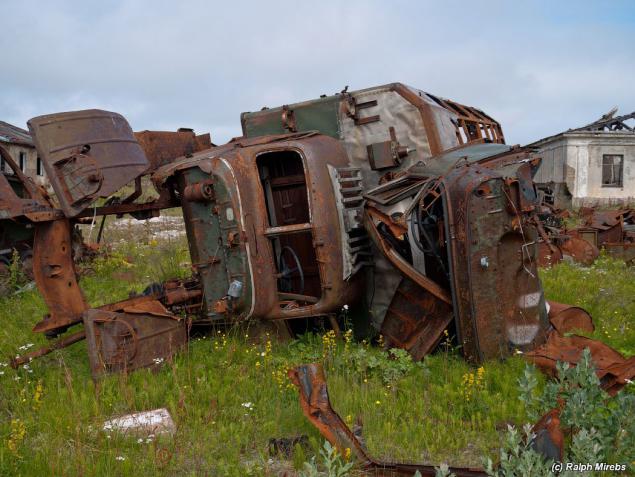
16
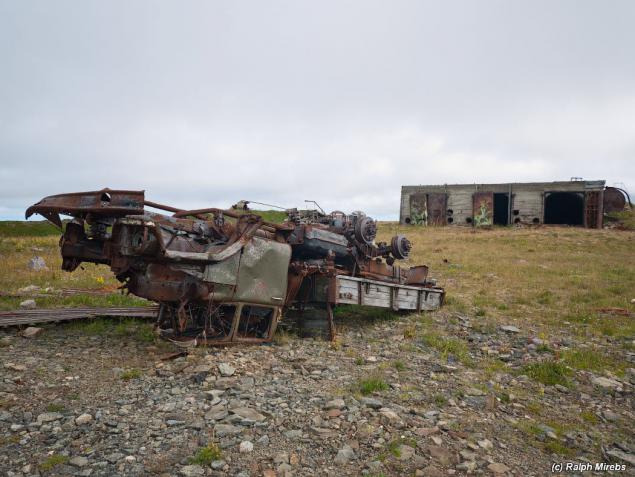
17. Boiler equipment and artillery rangefinder tower battery
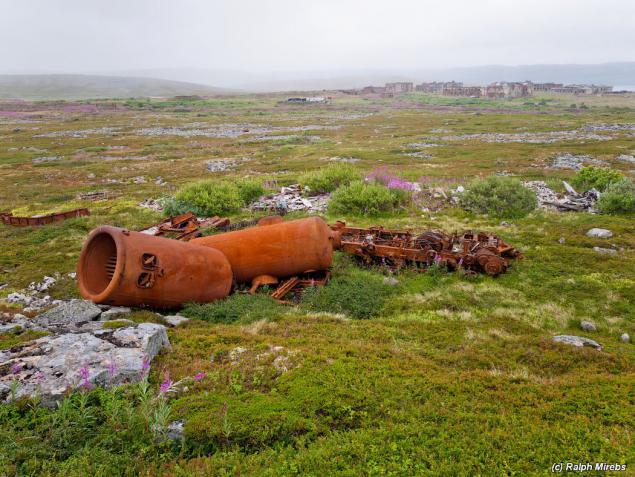
18
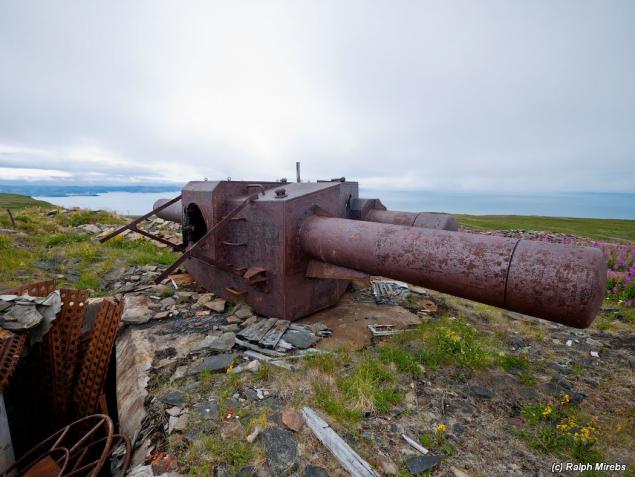
19. Settlement lower Kildin. The first settlement in the West Kildin can be attributed to the end of the 16th century. That's when Van Linskhoten, expedition member Barents, drew a map of Kildin Island and portrayed the encampment to the west. In the 30s of the twentieth century. It began active construction of military facilities on the island. Particular importance acquired the western shore of the island, rising to a height of nearly 300 meters above the Barents Sea and covers the entrance to Kola Bay. Newly created settlements in the West first called New Kildin. But with the appearance of buildings in the villages of the plateau to the west and divided on some maps were Lower and Upper Kildin Kildin.
In the pre-war period built roads, barracks to house builders and military warehouses, rock shelter, reinforced pier. In 1938, construction began on a rocky shelter directly across from the pier.
The real heyday of the Lower Kildin years can be considered the arrival on the island of 616 separate coastal missile regiment. For the delivery of equipment and weapons pier it was rebuilt and berth facilities support services grew regiment and homes. It could approach the pier small missile ships to unload / load the missiles.
The village of Lower Kildin "died" after the withdrawal from the island of 616 separate coastal missile regiment.
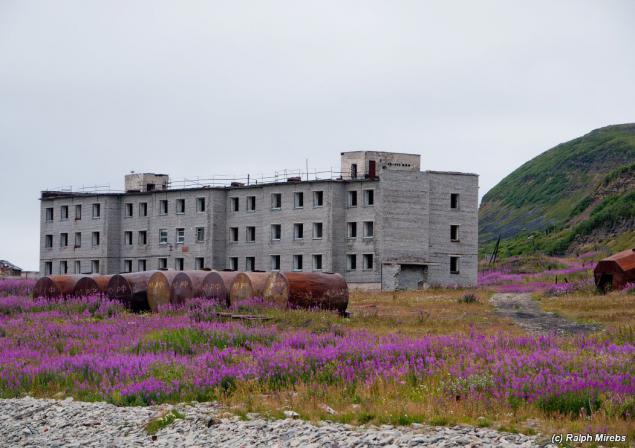
20
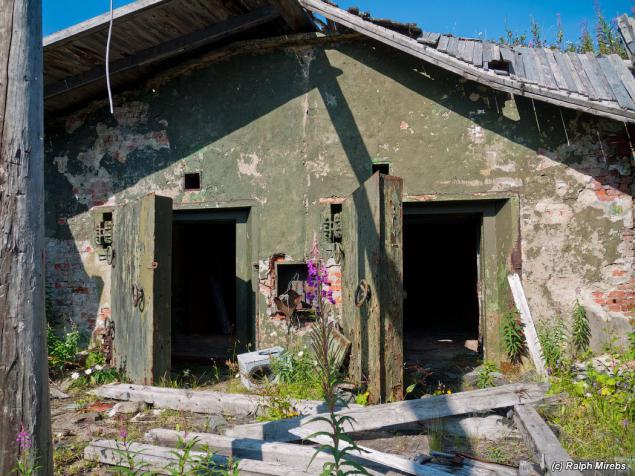
21
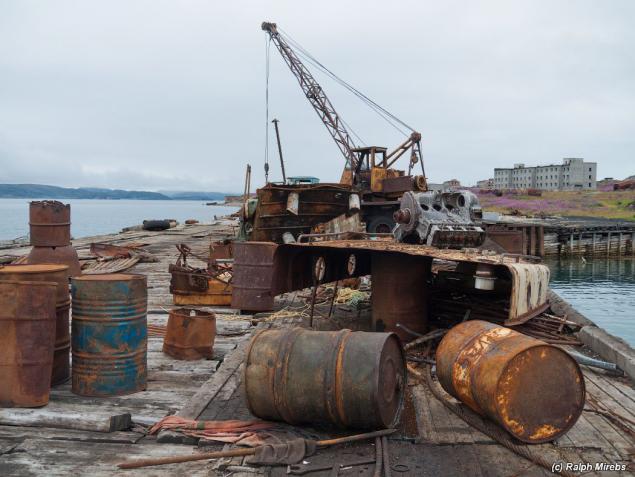
22

23
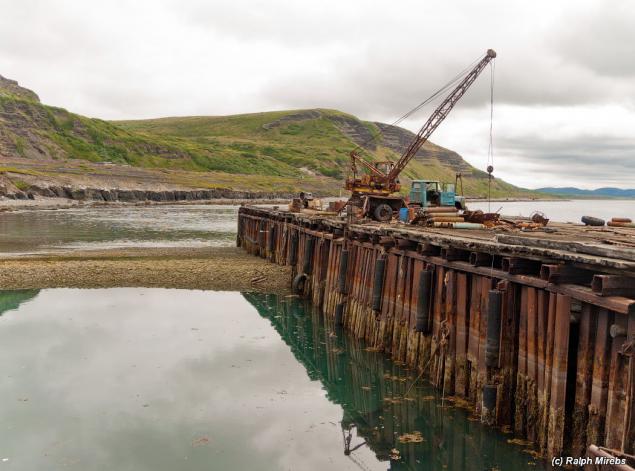
24
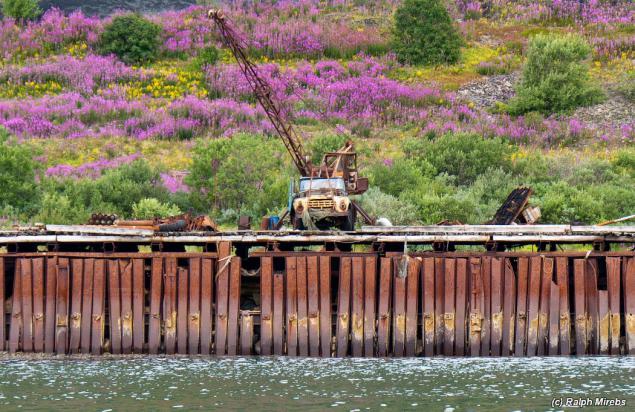
25
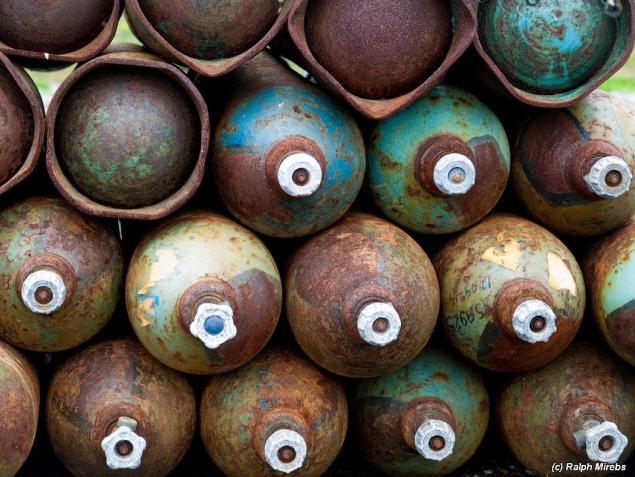
26
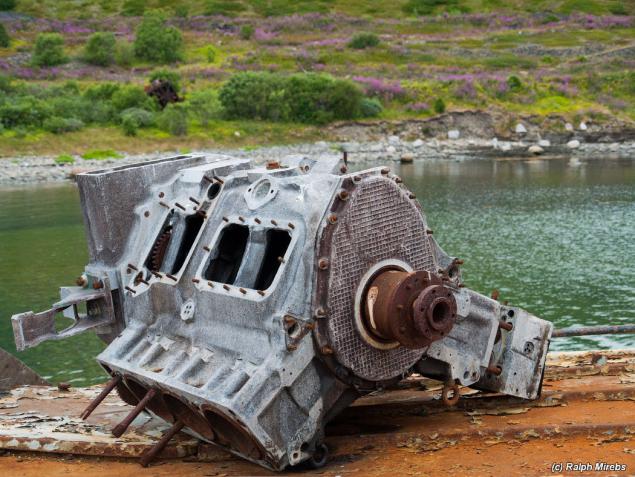
27
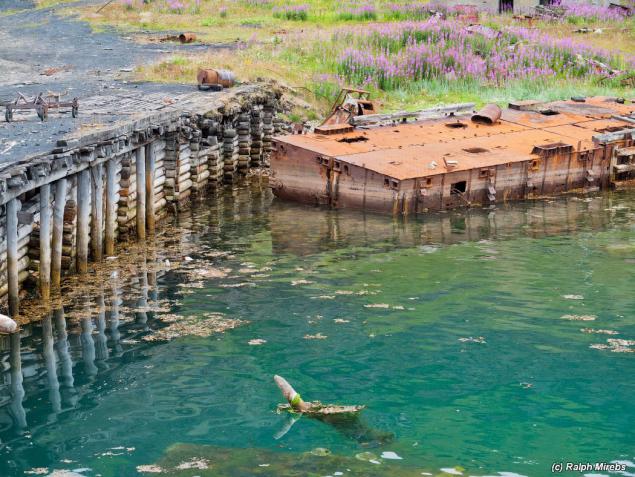
28
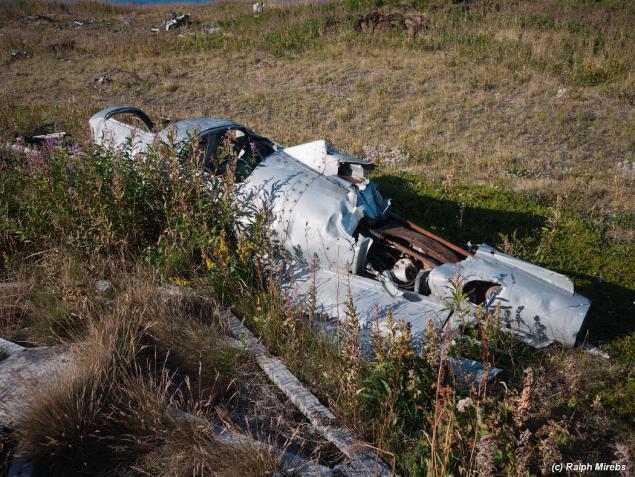
29
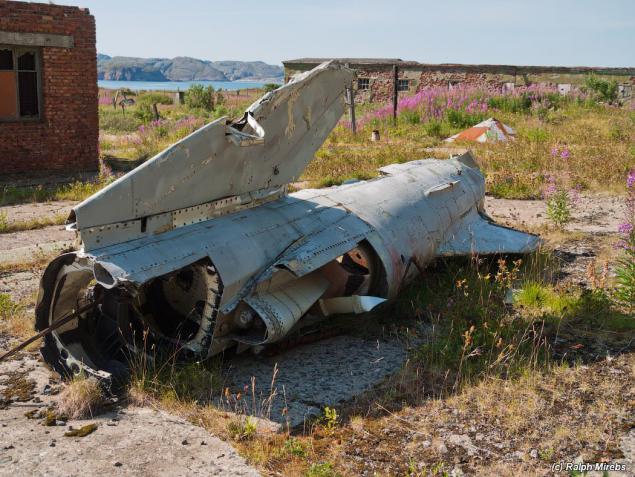
30
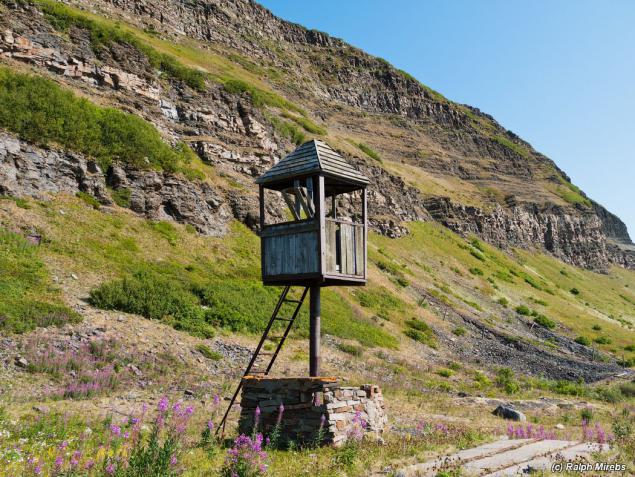
31
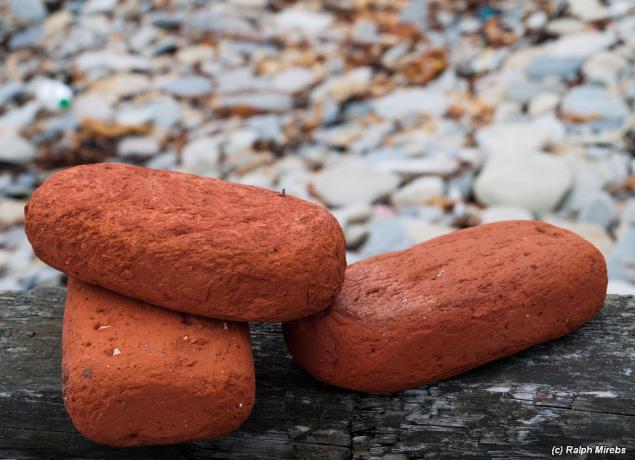
32. 100-mm artillery battery on Cape Bull. Artillery no KP empty.
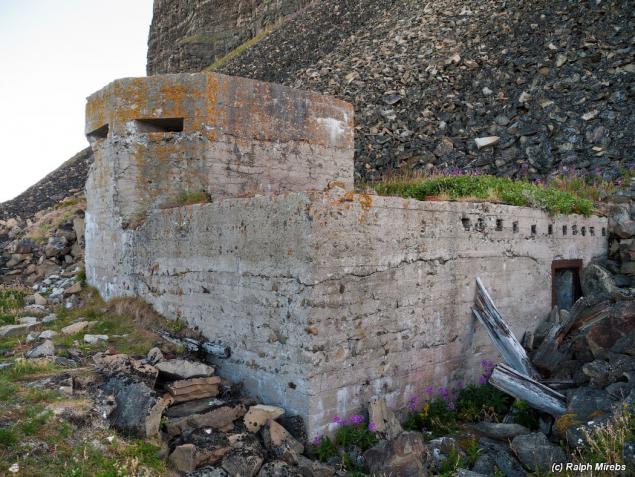
33
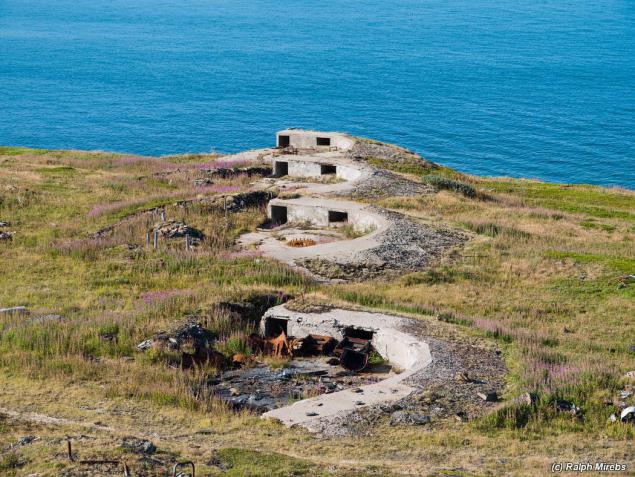
34
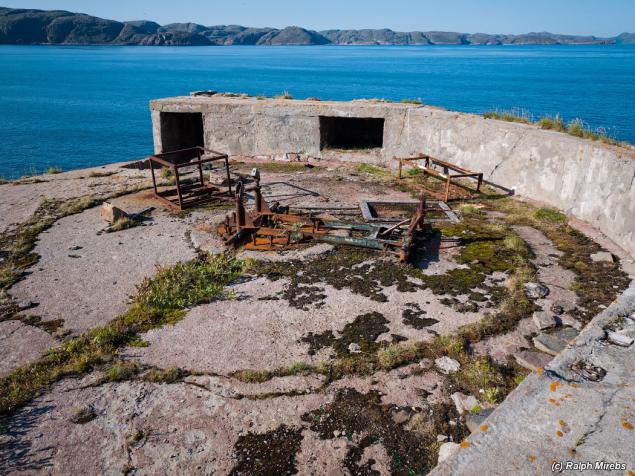
35
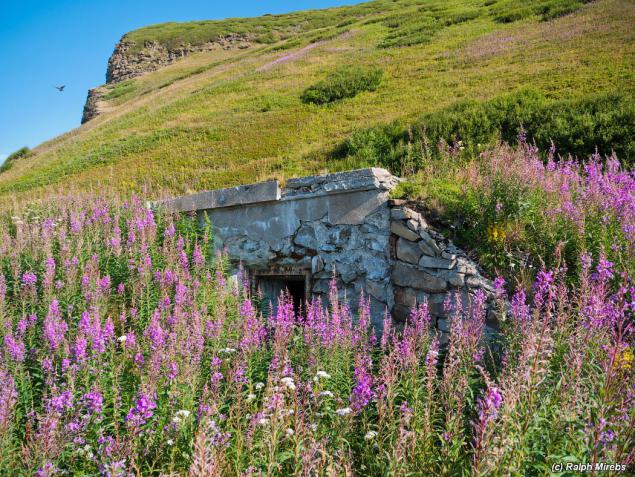
36. Around the island found shelter last several ships, including the well-known tourist wooden sailing yacht "Katarina»
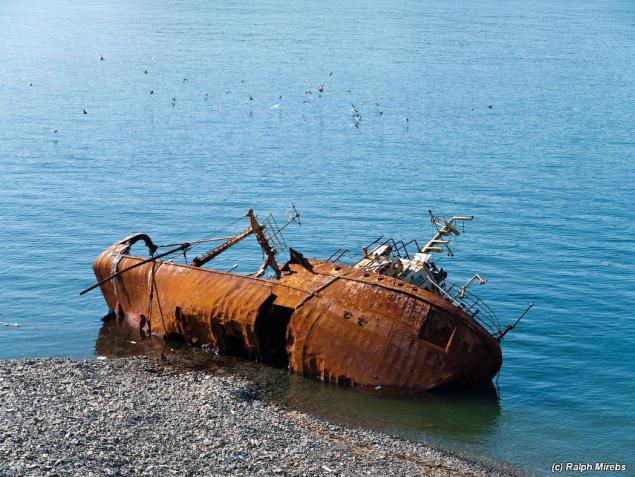
37
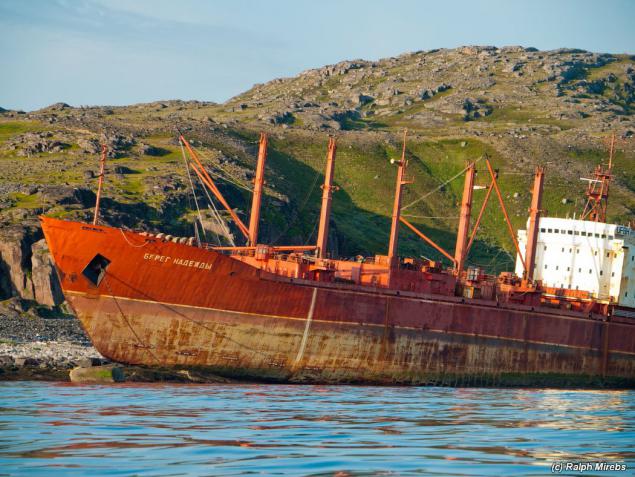
38
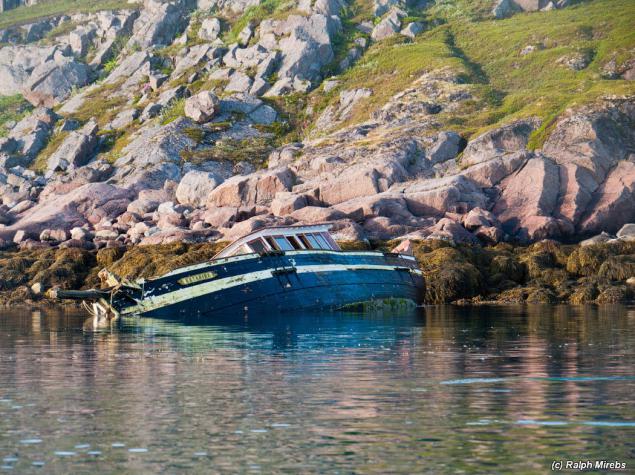
39
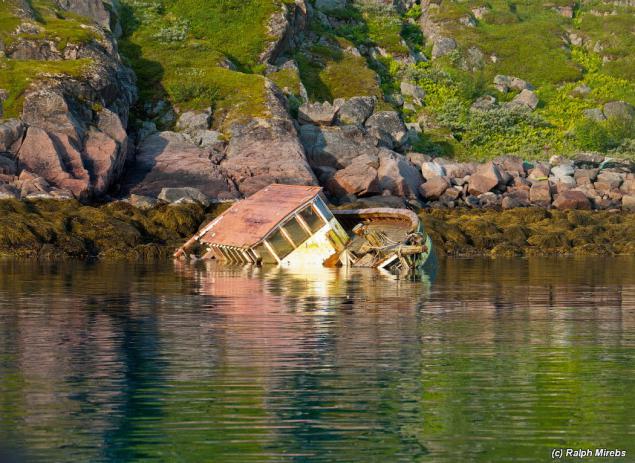
40. On the eastern side of the island was a frontier, a part of air defense S-75 and pads training target missile, storage regenerators air submarines. Now, from all this remained in ruins.
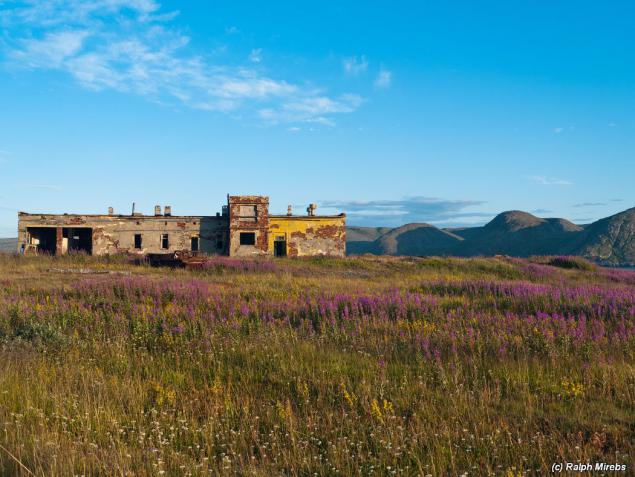
41
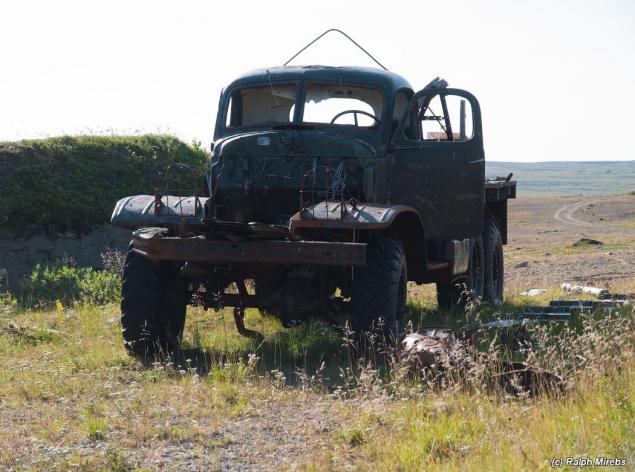
42
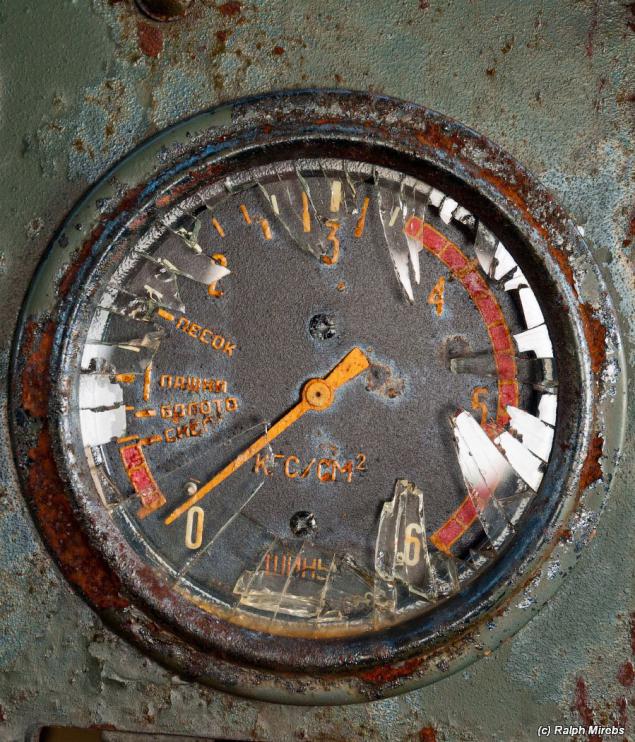
43
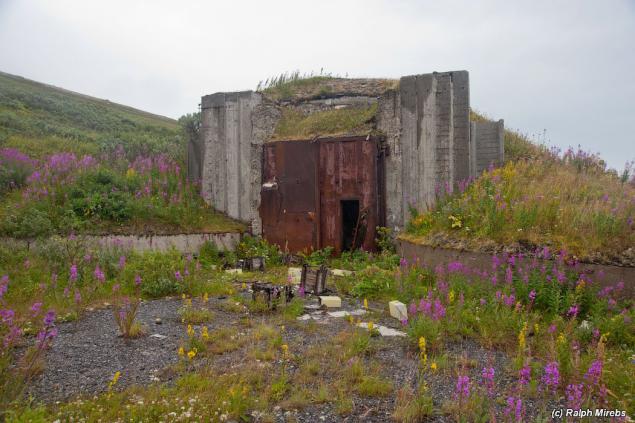
44
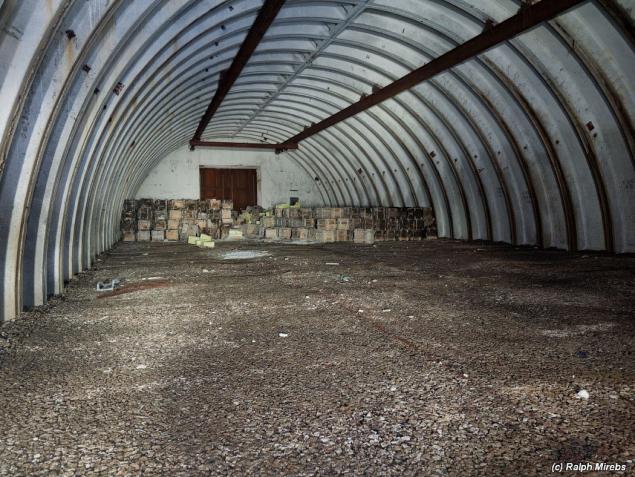
45
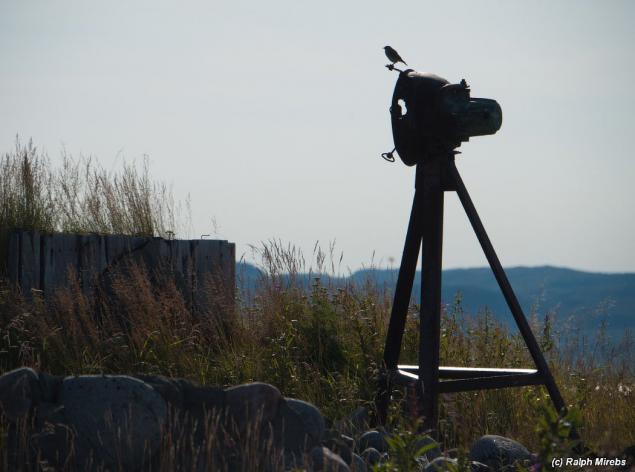
46. Of the existing military units on the island only for observation post overseas - Warrant Officer and ten conscripts.
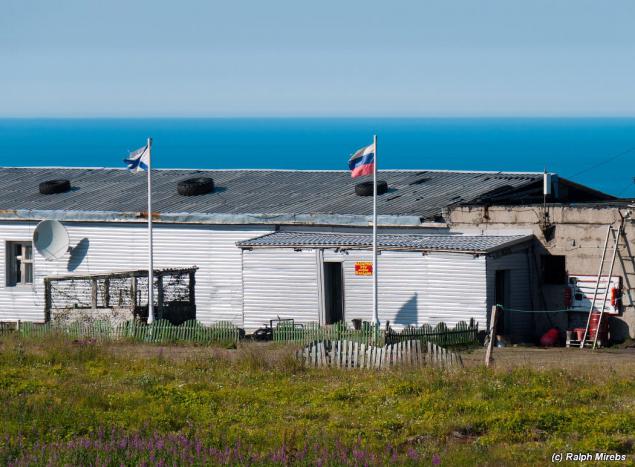
47
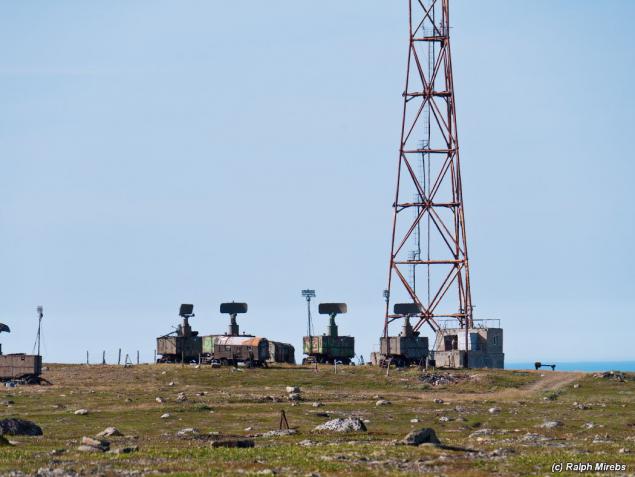
47. Zaporozhets commander.
Some would say that all of these ruins to carry iron to remove and clean the area. But it seems to me that we should not touch anything. Let these ruins are the memory of those who served in these harsh places, even a few tourists see not only the beauty of wildlife and learn about it, the other side of the island, despite the fact that it has long stained history.
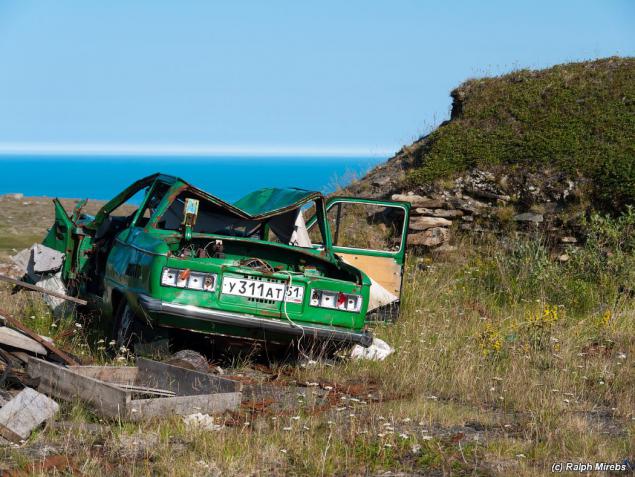
Source:
A few months ago I spoke about the vast expanses of Kildin Island, about what there is nature, flora and fauna. Today I'll show you the other side of the island - what is left after the departure of the person. Let me remind you that in Soviet times, the island has a number of military units - the border guards, air defense, artillery and missile troops. Now, all these parts are closed, their territory is overgrown with moss and grass, from which the towering skeletons of buildings and equipment.
48 photos and some text.

2. Upper Village Kildin. The beginning of the settlement of the "upper" Kildin in the western part of the island can be considered as the first world war, when the 1914-1916 biennium. We created the first monitoring stations on the Kola Peninsula. Until 1935, all the inhabitants of the Upper Kildin were represented only by personnel post Kildin West and lighthouses. At the end of 1935 it began the construction of a coastal battery, consisting of two towers MB-2-180. Battery State: 191 people. On the basis of the battery was formed 2nd separate artillery battalion formed the basis infrastructure of the island, as well as the general population of the Upper Kildin 15 years. Before the war the island was transferred the newly formed 6th separate anti-aircraft artillery battalion. The main buildings at the time were dug for the personnel. In 1955, the DAO was disbanded, but in the same year began the construction of a coastal missile system and the creation of 616 separate coastal missile regiment. To protect the island's infrastructure and approaches to the Kola Peninsula in the West Kildin placed air defense battalion. The presence of separate coastal missile regiment on the island - it's heyday West Kildin. In 1995, the regiment was taken to the Kildin ... At the moment the Upper Kildin completely abandoned.

03

04

05

06

07

08

09. Everywhere strewn remnants of abandoned machinery - tracked a variety of cars, trucks, trailers

10

11

12

13

14

15

16

17. Boiler equipment and artillery rangefinder tower battery

18

19. Settlement lower Kildin. The first settlement in the West Kildin can be attributed to the end of the 16th century. That's when Van Linskhoten, expedition member Barents, drew a map of Kildin Island and portrayed the encampment to the west. In the 30s of the twentieth century. It began active construction of military facilities on the island. Particular importance acquired the western shore of the island, rising to a height of nearly 300 meters above the Barents Sea and covers the entrance to Kola Bay. Newly created settlements in the West first called New Kildin. But with the appearance of buildings in the villages of the plateau to the west and divided on some maps were Lower and Upper Kildin Kildin.
In the pre-war period built roads, barracks to house builders and military warehouses, rock shelter, reinforced pier. In 1938, construction began on a rocky shelter directly across from the pier.
The real heyday of the Lower Kildin years can be considered the arrival on the island of 616 separate coastal missile regiment. For the delivery of equipment and weapons pier it was rebuilt and berth facilities support services grew regiment and homes. It could approach the pier small missile ships to unload / load the missiles.
The village of Lower Kildin "died" after the withdrawal from the island of 616 separate coastal missile regiment.

20

21

22

23

24

25

26

27

28

29

30

31

32. 100-mm artillery battery on Cape Bull. Artillery no KP empty.

33

34

35

36. Around the island found shelter last several ships, including the well-known tourist wooden sailing yacht "Katarina»

37

38

39

40. On the eastern side of the island was a frontier, a part of air defense S-75 and pads training target missile, storage regenerators air submarines. Now, from all this remained in ruins.

41

42

43

44

45

46. Of the existing military units on the island only for observation post overseas - Warrant Officer and ten conscripts.

47

47. Zaporozhets commander.
Some would say that all of these ruins to carry iron to remove and clean the area. But it seems to me that we should not touch anything. Let these ruins are the memory of those who served in these harsh places, even a few tourists see not only the beauty of wildlife and learn about it, the other side of the island, despite the fact that it has long stained history.

Source:
